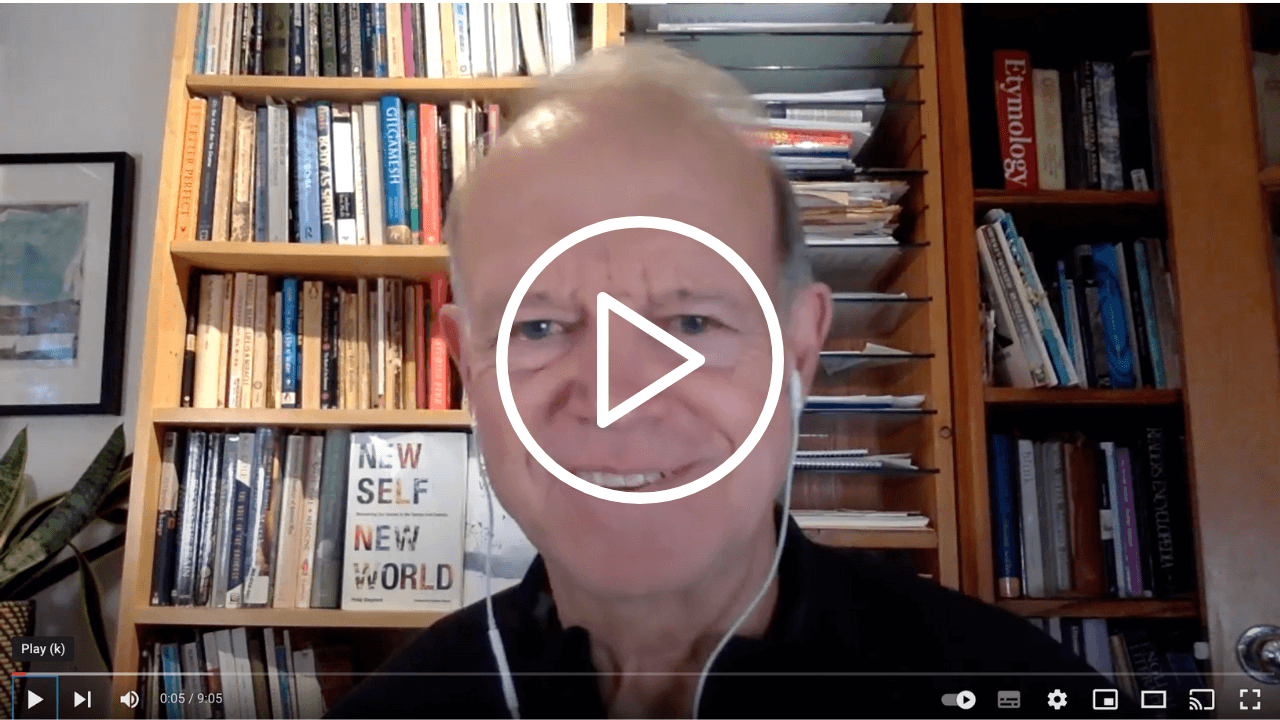Some 30 years ago, while riding my bike through the city, I caught up at a stoplight with a car in which one of my young nieces was riding. It was summer, and I was out of breath, hot, and riding without a shirt. As we paused at the light she looked at me breathing hard and declared, “Uncle Philip, you're fat!” I was actually pretty lean, but at that young age my niece had already learned to interpret a belly moving in response to the breath as ‘fat’ – and, as her culture had instructed, to use that term as a condemnation.
Belly-breathing is tacitly prohibited by our culture, and it is a prohibition that falls particularly hard on women. Even as children, they come to understand “Your belly mustn't stick out – hold it in!” Few women wear girdles these days, but belly muscles that refuse to yield to the breath accomplish the same thing. When you understand that the body is a fluid medium – it’s over 65% water! – you begin to appreciate the widespread consequences of a belly that is braced against the breath. Like a tide rising and falling, the action of the lungs sends a wave through the body's fluidity. When the breath-wave moves freely through the body, it can be felt traveling through the legs to the soles the feet, up to the top of the head, and down to the fingertips. When the body as a whole is released to the breath-wave like that, the body is felt as a whole. But when the body is cordoned in tension, the breath wave is suppressed. And where the breath wave is suppressed, sensation is suppressed. And where sensation is suppressed, we lose touch with ourselves.
When we habitually gird the belly against the breath, we disable its natural reflex to support the breath. And when the belly won’t make room for the breath to come in, where will that space be found? It could be found in the back or the pelvic floor, but our culture directs us away from those experiences, too. So the more likely scenario is that the chest, and especially the sternum, will take over. When that recourse becomes a habit, the sternum eventually assumes the primary job of initiating the breath.
And what’s wrong with that? Well, there’s a funny side effect that driving the breath with the sternum creates: when the impulse to bring breath into your body is dominated by the sternum, it triggers the ‘flight or fight’ response. You can feel this for yourself: let your sternum initiate four or five quick breaths, and you'll feel the effects of adrenaline on your system right away – a sense of anxiety, ungroundedness, even panic. Driving the breath with the sternum puts the sympathetic nervous system in a continual state of activation.
This, by default, is the breathing pattern women are instructed to fall into. Not all women fall prey to this – not by a long shot. But many do; and it not only keeps them from experiencing the wholeness of their being – it habituates them to a form of breathing that stimulates anxiety and self-doubt. And because the breath supports the voice, that pattern affects how the female voice is too often experienced in our culture.
Everyone’s voice acts like an MRI: arising from the body, it impeccably reveals what the body is experiencing. When your sternum takes on the job pulling air into your body, it generates a background of nervousness in your awareness. And that is heard. And when your belly is immune to your breath, you also lose touch with the depths of your being. That, too, is heard.
This especially shows up when the stakes are high. Men and women are enculturated to respond differently to stress. Men are allowed to be angry and loud, and that messy, disconnected energy is often what shows up when men are under stress. Male rage is all too familiar. Society judges women by a different set of rules. They are not allowed to be angry. They are not allowed to be loud or messy. And when under stress, the sternum drives harder and can easily make women sound nervous, unsteady, shrill or unsure of themselves. The appalling outcome is that what women are saying can too easily be dismissed without being heard. They may not technically be silenced, but the effect is the same, and it does damage to us all.
In workshops I share around the world, I introduce practices that help participants open the back to the breath, and to feel their breath in the legs, and in all the joints of their body – and to allow the driving of the sternum to soften. One of the most gratifying experiences of any workshop is when, near the end of it, a woman experiences the full, embodied authority of her own voice, rising up from her depths. The power of that sends chills up my spine and cracks my heart wide open.
Our world is desperately in need of women's voices to help us see in a different way, and to help us find a way forward together. For too long the male perspective has dominated, not just in boardrooms and politics, but in our most urgent discussions about the state of the world. And we can see where that bias has taken us.
I believe that in our pressing need to evolve a different consciousness and a new way of being, the missing piece – the part of our task we seem to overlook – is the journey that will take us back to the subtle and fathomless wisdom of the body. And I believe that women, whose bodies have historically been exploited, objectified and controlled, have a leadership role to play in helping us all forge that journey.
If we can recognize the impossibility of the cultural messaging women face, then we can begin to listen to what women are saying in a different way. And when a woman is offered that simple act of respect, it helps her on the journey of deepening into the whole of her body. And as her voice becomes more grounded and more clear, it benefits us all.





Leave a comment